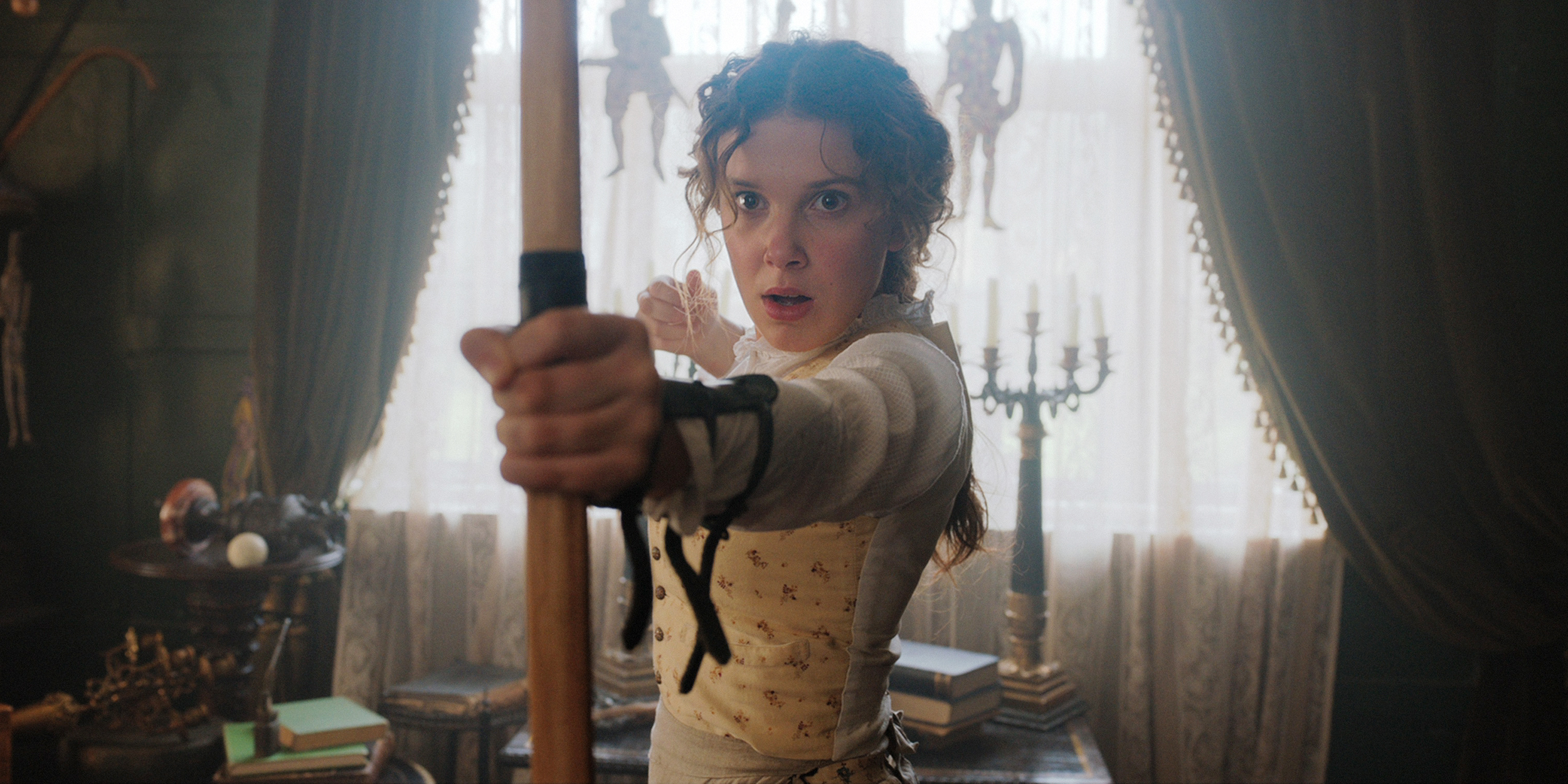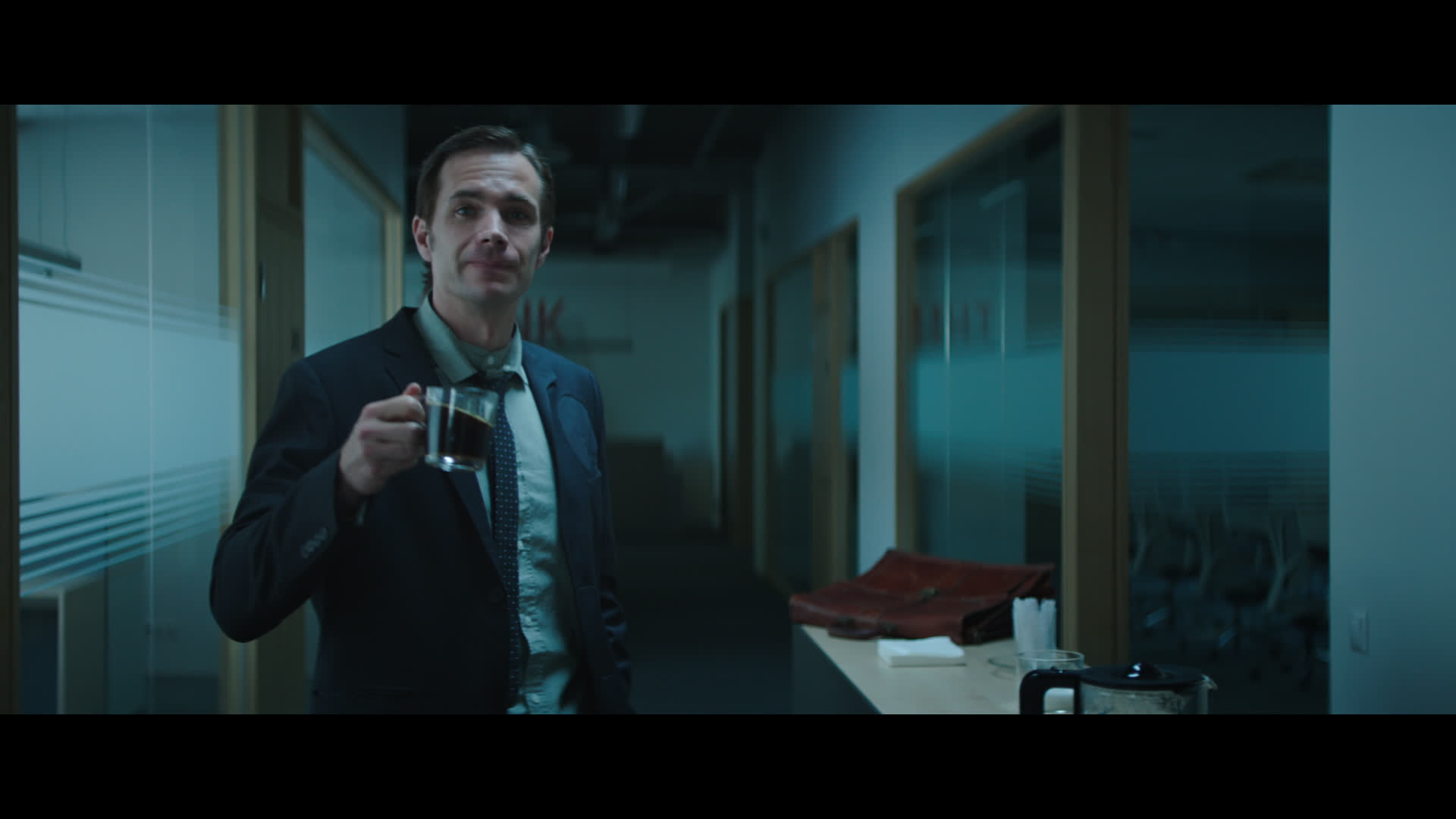The Wolf of Snow Hollow
by George Wolf
How good does a movie have to be before it can’t be improved by adding werewolves?
Don’t answer yet, let’s backtrack.
Two years ago. Thunder Road was a pretty fantastic breakout for writer/director/star Jim Cummings. A visionary character study with alternating moments of heart and hilarity, it felt like recognizable pieces molded into something bracingly original.
Now, Cummings feels it’s time to throw in some werewolves.
While The Wolf of Snow Hollow may not be exactly the same film, the road it travels is pretty thunderous, with Cummings playing a very similar character on a very similar arc.
He’s officer John Marshall of the Snow Hollow sheriff’s department. John’s father (Robert Forster, in his final role) is the longtime sheriff of the small ski resort town, but Dad’s reached the age and condition where John feels he’s really the one in charge.
John’s also a recovering alcoholic with a hot temper, a bitter ex-wife and a teen daughter who doesn’t like him much. But when a young ski bunny gets slaughtered near the hot tub under a full moon, suddenly John’s got a much bigger, much bloodier problem.
As more mutilated corpses stain the snowy landscape, John faces the wrath of scared townsfolk and the growing belief from his own deputies (especially Chavez!) that a werewolf might have come to Snow Hollow.
John doesn’t agree. “It’s a man! When do I get to be right about something?”
This script, like his last, is full of life, and has Cummings again juggling random outbursts of absurd non-sequiturs and hilarious anger with real human issues of struggle and loss. John’s afraid of losing his father, women are being preyed upon, and a drink would sure hit the spot.
And there’s a beast out there threatening the lives and livelihood of Snow Hollow. Yes, you’ll be reminded of Jaws, as well as any number of werewolf films and even Silence of the Lambs.
And if you have seen Thunder Road, you’ll quickly be struck by how much more stylish of a director Cummings is this time out. He’s got a bigger budget and it damn sure shows, with some gorgeous outdoor landscapes, frisky visuals (he must be an Edgar Wright fan) and a confident grip on his monster vision.
Forster’s mere presence brings a bittersweet authenticity to the supporting ensemble, and a stellar turn by Riki Lindhome as Snow Hollow’s most reliably steady deputy gives John’s manic nature a welcome contrast.
Cummings appears to have a gift for taking a pile of familiar, reshaping it and emerging with something endlessly interesting and effortlessly entertaining. The Wolf of Snow Hollow is all that and more.
At its core, it’s a super deluxe re-write of Thunder Road with werewolves. I call that a bloody good time.













